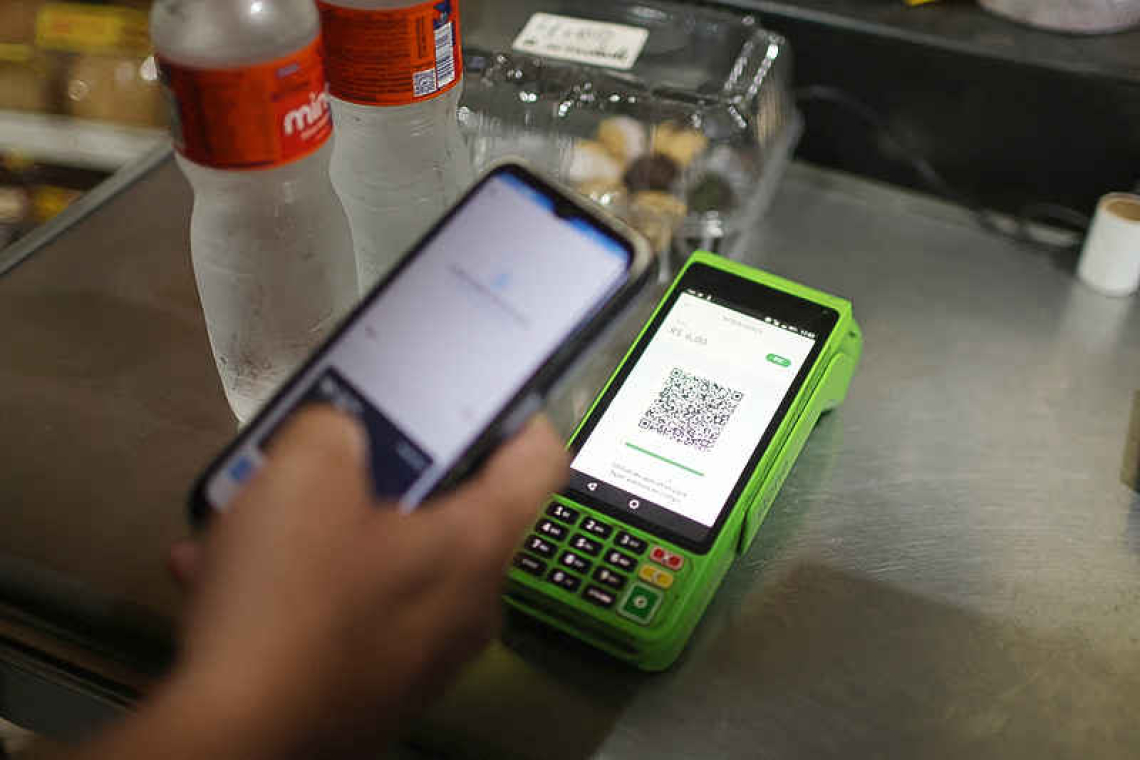BRASILIA--In just three years, Brazil's hugely popular Pix payment system has become the country's favourite way to pay, replacing cash and wire transfers in many cases and now threatening the dominance of credit cards in the booming e-commerce sector.
The instant payments designed by Brazil's central bank are a boon to online retailers, helping with cash flow in a sector with tight margins, while undercutting the legacy business of banks and fintechs built on existing credit card infrastructure. "I think credit cards will cease to exist at some point soon," central bank chief Roberto Campos said nearly two years ago, discussing the potential for open finance and the Pix platform. "This system eliminates the need to have a credit card." Market trends have since added weight to his forecast. Use of Pix surged 74% last year to nearly 42 billion payments across the Brazilian economy — surpassing credit and debit card charges combined by about 23%, according to central bank data and industry group Abecs. For buyers, the switch to Pix has been nearly seamless, as they simply scan a QR code with any banking app instead of reaching for their wallet. But for sellers, it has turned the tables on the traditionally lucrative card payments industry. In online retail, orders paid with Pix surged 22 percentage points in two years to about a third of all purchases in December, according to e-commerce research firm Neotrust. Credit card orders slipped 5 percentage points to 51% in the period. That trend is likely to pick up as the central bank teases new Pix innovations starting this year such as recurring payments and purchases in installments, which one official said is likely to boost the system's role in retail. Although Brazilian consumers rarely notice, paying with a debit or credit card requires sellers to pay discount fees divided between card networks such as Visa, Mastercard and American Express; payment processors such as Cielo, Rede, Stone, Getnet and PagBank, as well as card issuers, which are typically banks. By removing intermediaries, Pix is putting pressure on the card networks, which receive no cut of such transactions, and payment processors, which pocket a much smaller slice than they get for credit or debit card purchases. Pix costs an average 0.22% of each transaction for retailers, whereas debit card fees run over 1% and credit card fees can reach 2.2% of each sale in Brazil, according to a Bank of International Settlements (BIS) paper. The growth of Pix "can limit the use of credit cards and pre-payment volumes," Goldman Sachs told clients in a note. Analysts noted that the extra fees for early payment of credit card sales contribute meaningful revenue to payment processors Stone (49%), PagBank (34%) and Cielo (9%). Those companies declined to comment. Major players in Brazil's credit card industry are shifting their approach as storm clouds gather. Cielo's controlling shareholders Banco do Brasil and Bradesco announced in February their plans to take it private, a path already taken in 2022 by rival Getnet, owned by Spanish bank Santander. Two sources familiar with the operation told Reuters, on condition of anonymity, that going private gives leeway to offer a bundle of integrated products, becoming less reliant on the traditional business of connecting retailers to credit cards. "BB and Bradesco opted to carry out Cielo's public offering as a way to make the company's governance more aligned with the new configuration of the sector," Banco do Brasil said in response to questions, adding that the industry had become more competitive amid recent "transformations." Bradesco declined to comment. "Pix has been and will continue to be the most disruptive technology in the financial segment in the country for the next few years," said Eduardo Lopes, public policy director at Nubank, Latin America's largest digital bank.







